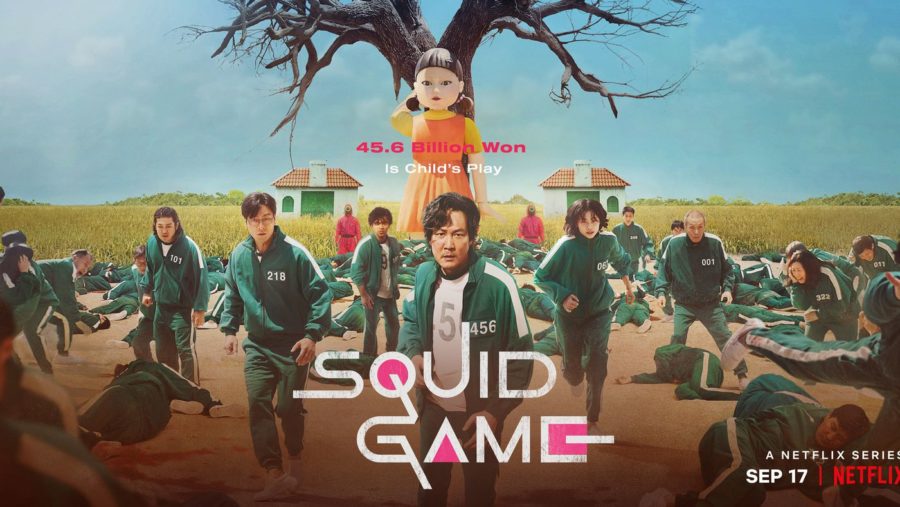New Netflix series, Squid Game, models capitalism today
November 29, 2021
Since its release on Netflix in September, the Korean drama, Squid Game, has increased in popularity and continues to maintain a fanbase worldwide. Approximately 142 million people have streamed the series directed by Hwang Dong-hyuk since its debut. The show has also sparked many fan theories about its potential commentary of social class, politics and even the economic structure of capitalism. Squid Game does an excellent job of representing these different topics and presenting the issues in not only Korean society, but worldwide dilemmas in an entertaining and thought provoking way.
Squid Game follows main character Seong Gi-hun, a poor, indebted chauffeur who has an obsession with gambling. After finally winning some money in a gamble, he ends up losing his earnings and is threatened by the people he owes. In an act of desperation, he meets a stranger that tells him he can play a series of children’s games for a cash prize of 45.6 billion won or $38,276,065.44 and he signs himself up. What he doesn’t realize until later is that losing these games could cost him his life.
Gi-hun is taken to the arena, where he and 456 other players will compete for the cash prize. After the deaths of over 200 people in the first game, the reality of the situation sets in and the remaining players begin to panic. The game makers give the players the opportunity to vote whether to stay and continue playing or to be sent back home. Regardless of the majority voting not to continue in the vote of 100-101, many of the participants return to the game later. This scene is the biggest critique of capitalism in the season. The players were given the democratic opportunity to express their opinion and continue based on the majority vote. However, the consequences of their living situations in a capitalist society overrides their original decision to protect their own lives.
The voting shows how important money and the potential of receiving it is to these players, as they believe their possible demise is worth the risk. This also shows how little democracy can mean if you live in a society where the poor can never seem to change their financial status if not by a stroke of luck. “Because the show is motivated by a simple idea, we are fighting for our lives in very unequal circumstances. It’s not profound! It’s very simple! I do believe that the overall global economic order is unequal and that around 90% of the people believe that it’s unfair. During the pandemic, poorer countries can’t get their people vaccinated. They’re contracting viruses on the streets and even dying. So I did try to convey a message about modern capitalism. As I said, it’s not profound,” director Hwang Dong-hyuk said in an interview with the Guardian.
It is confirmed that Squid Game will be getting a second season, despite the fact that most tv shows in South Korea only run for one. Because of this, Dong-hyuk does not have a plan for the second season. The director stated that he plans to find a writing and production team to aid him in the creation of the second season. Because Squid Game has surpassed Bridgerton as Netflix’s most successful show of all time, the pressure is on to create an equally successful second season. It will be interesting to see the fan theories and commentary that this show continues to generate.
